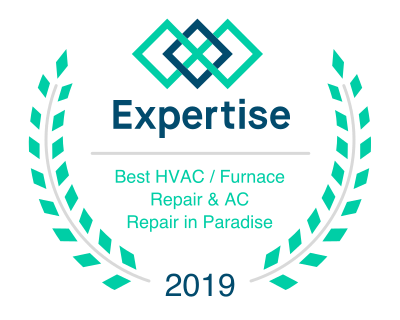When Captain Planet warned us about the power of the elements – earth, wind, water, fire, and heart – I doubt he was referring to home air conditioning. Indeed, air conditioning in one’s home is an essential part of living for many adults, acting as a guardian against environmental heat and ensuring optimal airflow within the premises. However, it’s not all simple as it appears. Troubleshooting various issues, conducting repairs, and ensuring good air quality are integral parts of maintaining this system. When you need HVAC services for your house or business, you should find a company proficient in these aspects that will fit your budget while doing quality work. Regular maintenance is important for your air conditioning unit to continue to function optimally. That’s at least the first thing that every homeowner should know about HVAC.
One of the best inventions that any homeowner can have is a programmable heating, ventilation, and air conditioning unit. Your HVAC system allows you to keep your home at the desired temperature, while also assisting in zoning different areas of your house for optimal comfort. But how much do you really know about HVAC? Do you know how to pick an HVAC company that won’t rip you off? Do you know what cools and heats your house? Do you even know how your air conditioner and furnace work? If not, don’t worry. You’re not alone.
Learning about home improvement can be a difficult task. However, we all know that we must keep our homes in good condition. If not, they will just end up costing us more in repairs than they are worth. This is especially true of the HVAC systems as they are essential to maintain the comfort and air quality in your home! Homeowners who use their HVAC system for more than two or three hours a day may find the need to hire an HVAC service company. A reliable and reputable HVAC company can help navigate through any arising issues, preventing any major situation from spiraling into a disaster. While you might not be an expert in this business, there are still steps you can take. For example, you can educate yourself with some basic information.
Having a basic idea of what your system does and doesn’t do can save you from unnecessary headaches and costs. A neglected HVAC system might end up burning a hole through your wallet, mandating repairs and troubleshooting often. Fortunately, there are several easy things you can do to ensure your HVAC system works without fail throughout the year, maintaining the best possible air quality.
What Makes Up Your HVAC System
An efficient home heating and air conditioning system is assembled using myriad different parts. You may have a general idea about what makes up your HVAC system. However, a deeper understanding of the ins and outs of each piece of equipment can be invaluable when it comes time to install, troubleshoot or repair the components if something goes awry. An efficient HVAC system not only offers optimal airflow and air quality but can also save you money on energy bills. So let’s look at the different elements that make up your HVAC system. Here is what you need to know.
The thermostat
The thermostat is the most important device in your HVAC system. It is the command center, the programmable interface that controls the temperature in your home, correlating to the time of day and weather conditions. These devices communicate with each other and with your HVAC system through either wired or wireless technology to achieve thermal comfort, making it a crucial aspect of your home’s zoning and airflow.There are three primary components to a thermostat: the hardware, software, and wiring. A vital part of the hardware includes the HVAC unit, the importance of which is understanding the role it plays in helping maintain a comfortable temperature throughout your living spaces.
Depending on how old your system is alongside your use of room heating or air conditioning, you may have multiple thermostats. Each is fitted with air filters designed to prevent debris from obstructing the HVAC systems. The filters aid by keeping the air clean, and with a timely replacement schedule, they can increase the lifespan of your HVAC systems. Each thermostat allows you to set its temperature levels and may also have a button to alert your other HVAC or heating systems in cases of temperature disparities. A properly installed thermostat can save you money by maintaining a comfortable temperature despite the ambient changes, enhancing the energy efficiency ratio. HVAC maintenance, including air filter replacement, contributes to this efficiency and the annual fuel utilization efficiency.
The air purifier
An air purifier’s primary functions are to remove airborne pollutants such as pollen and dust mites from your home, improving your HVAC systems’ effectiveness. Furthermore, it controls humidity levels inside the space, complementing the functioning of your HVAC unit. A fogger can also enhance your HVAC system’s performance, whether dealing with allergens or mold. Understanding your unit’s basics will help you optimize results, including knowing when an air filter replacement is needed for proper functioning.
As expected, you’ll find many different types of air purifiers in the market. When choosing, ensure that it works well with your HVAC systems and offers sufficient filtration for your home, as this can prolong the lifespan of your HVAC unit.
The ductwork
Meanwhile, the ductwork, composed of various materials such as steel, fiberglass, and copper, serves as your home’s air distribution system. It effectively circulates heat and cold through your home, enhancing the functionality of your HVAC systems. Each section of the ductwork is made to distribute heat and cold throughout the larger space, reinforcing the efficiency of the HVAC unit.
A homeowner may not realize how many different parts, like air filters within their HVAC systems, are needed. They may also overlook the potential impact a dysfunctional duct system could have on their home or office. For instance, the ductwork for homes or commercial buildings is designed to keep the air in and moisture out, a critical role in ensuring a comfortable environment. Consequently, a properly installed ductwork system coupled with regular HVAC maintenance including debris-free air filters will save money on air conditioning costs over time. You can also save energy by reducing the indoor and outdoor temperature difference.
Your home’s ductwork is an integral part of the overall air conditioning system. It circulates air throughout your home and helps in reducing temperature differences within various areas of your home. With the correct HVAC maintenance, replacement of air filters and debris removal, your HVAC unit can have an extended lifespan ensuring your home’s temperatures are always comfortable.There are three main parts of a ductwork system: the air ducts, the filter, and the chimney. The two main types of air ducts are the supply duct and the return duct. Your air filters are located inside your return air ducts. Technicians recommend a regular inspection of these systems on a basis to ensure optimal functioning and to detect any unusual noises.
It’s important to note that the state of your ductwork directly affects your energy consumption, thus your home heating efficiency. For example, your HVAC system needs to work 50% harder if your ducts are leaking 20% of the air it conducts. This impacts energy efficiency significantly. In effect, leaky ducts mean more energy consumption and higher energy bills.
The heat pump
The purpose of the heat pump on your HVAC system is to use the heat generated by your air conditioner to warm the air entering your house. The heat pump is connected to your ductwork or sealable space such as the patio. It’s there to help circulate cold air throughout your house when you’re condensing temperatures in your office or yard. By using heat pumps, you can optimize the performance of your HVAC system, as a heat pump improves the efficiency with which warm air circulates throughout your house. The difference between heat pumps and boilers is that the boiler produces heat through water vapor while the heat pump collects heat.
When it comes to the design and maintenance of your home’s heating and ventilation system, there’s a lot more that goes into making sure you have comfortable living conditions than you might realize. From timely inspection of the system by trained technicians to practical tips for optimal use, everything matters. Heat pumps are one of those components that add both cost and benefits to your HVAC system.
Your home’s heating and cooling needs depend on several factors, including the temperature outside and the quality of the air you breathe. Knowing how to keep these systems happy is essential to maintaining comfort throughout the house. The role of the filter in your HVAC system cannot be underestimated in this regard. Heat pumps help distribute hot air from the exterior into the interior, and cool air from the interior out through the porous structure of your home. This systematic process underlines the idea of energy efficiency on a daily basis.
Air conditioner
The air conditioner on your new HVAC system is to combat the effects of heat and moisture on your home. While it may seem like an unnecessary expense, properly installed and maintained air conditioners can save you hundreds or even thousands of dollars per year depending on your specific conditions. This is the part of the unit that hosts the evaporator coil and the refrigerant, which absorbs the heat to produce cool air. The refrigerant tubes connect the evaporator coil to the outdoor air conditioner.
The use of air conditioning should be judicious and need-based. You would want to stick to the thermostat’s recommended schedule to prevent unnecessary energy waste. On the other hand, beware: If you leave the AC on full blast from morning till night, you’ll quickly pay for the wasted energy. Plus, the maintenance costs over time increase, which can be managed by scheduling regular inspections by skilled technicians. This helps to keep your air conditioner running at peak efficiency throughout the year.A furnace is another heat source that you can have in your home, a crucial element in our everyday life. Whether you have windows or only open units, there are best practices to know if you don’t want to spend hours researching the HVAC industry on your own, or see a heavy spike in your utility bills. With seasonal changes and the accumulation of dirt and leaves, understanding your system becomes even more important.
The furnace
Your furnace is what houses the heat exchanger, which conducts the thermal energy from one place to another. It can heat a small room in 20 minutes, showing how reliable it can be even in the harshest of times. However, there are limits to how much it can heat a larger area in 1 hour. Your furnace must be adequately rated to work with your ductwork and the electric wiring throughout your home while taking into account the varying humidity levels. It must also be capable of maintaining consistent temperatures in all areas of your house even if it’s cold outside.
In addition, understanding the performance of different furnaces gives you the power to compare models and choose the one that best meets your needs. There are three general types of HVAC central heating systems: heat pump, heat exchange, and absorber furnace. Each furnace uses a different technology and can provide different levels of heat for your home depending on if it’s installed in a new or used house.
The dehumidifier on your HVAC system is what keeps the molds out, contributing to a healthier living environment. That’s why most systems arrive with a provision that allows the customer to purchase a certain amount of time (usually 2-3 weeks) before having their system run through its paces, giving you a fair chance to evaluate its functionalities.
The dehumidifier
Homeowners who design their home add-ons encounter unique challenges. The challenge of controlling the temperature in your home increases with the size and complexity of your system. The most common issue encountered by new homeowners is moisture buildup behind the wall or ceiling insulation. This often causes condensation to form on the equipment and skin. An effective way to eliminate such problems is by using dehumidifiers, they help control humidity levels, keeping the house comfortable and mildew-free.
The condenser unit is an important component of your HVAC system. Condenser units use either electrical or gas heaters to heat a space or to help circulate fresh air throughout a room. This helps maintain a consistent indoor air quality throughout your home. If not for your condenser unit, you could experience uncomfortable temperatures from untreated return air flow. The condenser consists of the condenser coils, compressor, copper tubing, a blower fan, condenser tubes, ventilators, and other valves.
The condensing unit
The average homeowner keeps their HVAC unit for an average of 10 years. That’s not very long, especially when you consider that most people spend more than half of their lives inside of their homes. It makes us question, where does the time go? That’s why you need to understand the basics of home heating and cooling. The HVAC keeps working for longer than humans do. So you must keep an eye on everything that’s under your control, from entangled dirt in your condenser unit to rising utility bills.
Conclusion
The average homeowner keeps their HVAC unit for an average of 10 years. That’s not very long. Especially when you consider that most people spend more than half of their lives inside of their homes. Where does the time go? That’s why you need to understand the basics of home heating and cooling. The HVAC keeps working for longer than humans do. So you must keep an eye on everything that’s under your control.
Once your HVAC system is installed, routine maintenance by your HVAC contractors is necessary to ensure maximum performance. Always consult with experts and get recommendations when choosing a new unit. We have the expertise to recommend a product that meets industry standards while still meeting your needs and budget. You might not consider yourself an HVAC expert so call our experts and ask all the questions needed. The more involved you get with servicing your unit, the easier it will be to keep it working properly and avoid costly breakdowns whether you have a split system or a packaged unit.












